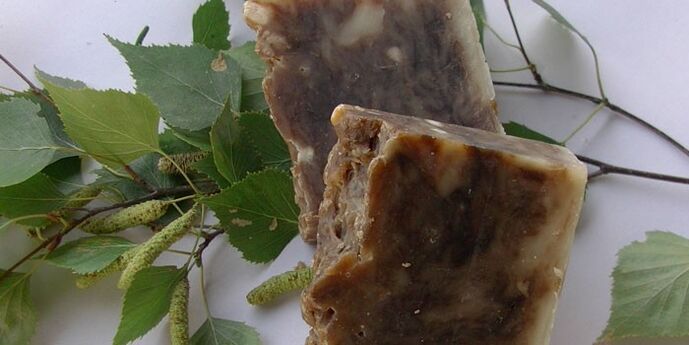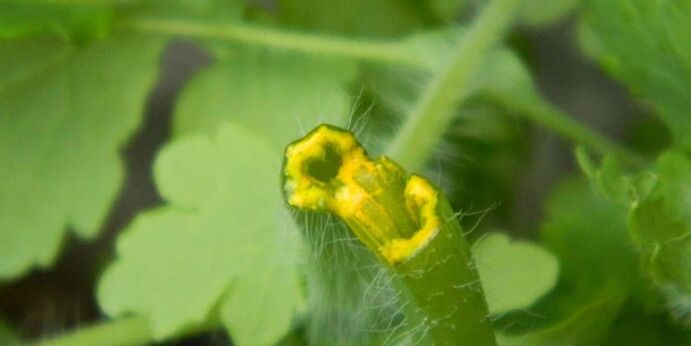Mycosis, commonly called fungus, is an infectious foot disease caused by microscopic fungi of various types. Foot fungus is often accompanied by onychomycosis - damage to the nail plate. This disease cannot be ignored, because the skin on the feet itches, there is discomfort when walking, and the nails deteriorate. Folk remedies for foot fungus will help both eliminate the problem and serve as a method of prevention. Unlike antifungal ointments and creams, folk remedies will be safer for human health.
Treatment of foot fungus with folk remedies
Foot fungus occurs in one in ten people, meaning the condition is common. Anyone can get a fungal infection: in a water park, at the pool, on the beach, when trying on shoes, after using untreated pedicure tools. You can also get mycosis due to poor foot hygiene, so it is necessary to treat shoes and change socks in time.
The first symptoms of mycosis appear between the toes, burning, scaling and itching. Then the infection moves to the foot and the nail plate. If you do not start treating nail fungus in time, the upper layer of the nail plate will begin to peel off, the nail will deform and change color. It is difficult to cure mycosis at the last stage, so if you notice the first manifestations of infection - a change in the color of the nail, peeling, itching of the feet, the appearance of scales, rough skin andreddened, you should immediately start treating nail fungus with folk remedies.
Traditional medicine recipes
Folk remedies for toenail fungus can replace pharmaceutical drugs. The infection multiplies quickly in a neutral, slightly alkaline environment, so many alternative medicine recipes include soda and vinegar. However, ingredients such as iodine, birch tar, essential oils, kombucha, hydrogen peroxide, apricot resin tincture, etc. are also applicable. Treating nail fungus with folk remedies will save you from having to purchase antifungal drugs, which can have a negative effect.

Foot baths
Fungus can be treated by preparing medicinal foot baths. They can be based on baking soda. Add soda to hot but not boiling water, poured into a basin, special foot bath or other container at the rate of 1 tablespoon per 2 liters of water. It's okay to add sea salt. Continue the procedure for 30 minutes, then dry your feet thoroughly and put on clean socks.
For the following recipe, you will need ½ teaspoon of potassium permanganate, 1 tablespoon of grated laundry soap, 1 tbsp. spoon of soda, 2 tbsp. spoons of powdered mustard per 1 liter of liquid. The feet should be steamed in a hot bath for half an hour. Vinegar baths are also effective. To prepare them, take half a glass of table vinegar or apple cider mixed with a liter of liquid. If you experience discomfort or tingling, add a little water to reduce the concentration of vinegar. After the procedure, dry your feet with a clean towel.
Ointment
Applying an ointment prepared at home promotes rapid recovery. Take 70% acetic acid and glycerin, olive oil, dimethyl phthalate, mix the ingredients in a ratio of 1: 1: 1: 2 until smooth, then apply, leave for 9hours, then wash your nails with laundry soap. Dimethyl phthalate can be replaced by repudin. An ointment consisting of vinegar, olive oil, glycerin and repudin in the same ratio is applied to the affected fingers, nails, lubricates the feet and leaves for 6 hours.
Another way to prepare the ointment: wash and dry a chicken egg, pour 100 g of vinegar essence, leave for 5-7 days. During this time, the shell will dissolve completely. Add 100 g of melted butter to the resulting mixture, beat until creamy. Apply the ointment every evening to the affected areas of the foot for several hours, wrapping it with a bandage.
If most of the foot is infected, you can use the following method: mix 100 g of vinegar, 40 g of talcum powder, 50 g of glycerin, 700 g of distilled or boiled water until smooth. Leave for three days. Rub the 3 tablespoon mixture onto your feet until completely absorbed. Use for 11 days, then rub 1 tablespoon for 10 days. The illness will disappear within a week, but the course must be completed in full.
Compress
For treatment, you can use celandine juice. In medicine, celandine, which contains phytoncides, is used to combat skin diseases. Grind the leaves of the plant, mix 1 tablespoon of celandine with 2 drops of tea tree oil. Apply the mixture for 3 hours by wrapping your feet and toes in cling film. You can make an effective decoction of celandine.
Pour unrefined vegetable oil over the dried leaves so that it covers the plant by about 3 cm. Store the decoction for 2 hours at room temperature, then send it to a cool place for 2 weeks. After the expiration date, filter. Dampen a cotton pad or clean cloth and apply for 2 hours. Before doing this, spray your feet well. It is possible to treat the fungus with tincture of iodine. Mix 20 ml of iodine, 20 grams of celandine. Apply a solution of iodine and celandine twice a day for one hour.

Treatment of foot fungus in children
Folk remedies for foot fungus are also applicable to treat infections in children. Mycosis can occur at any age, as the infection is transmitted from person to person, so it is important to immediately identify the disease in a child. For treatment, you can use propolis or apply iodine to infected areas of the foot and nails. Propolis tincture can be effectively used in the form of compresses: apply propolis to a cotton pad and apply to the foot until the pad is completely dry. So, using folk remedies for foot fungus, you can easily cure a child's illness without harming his health.
















